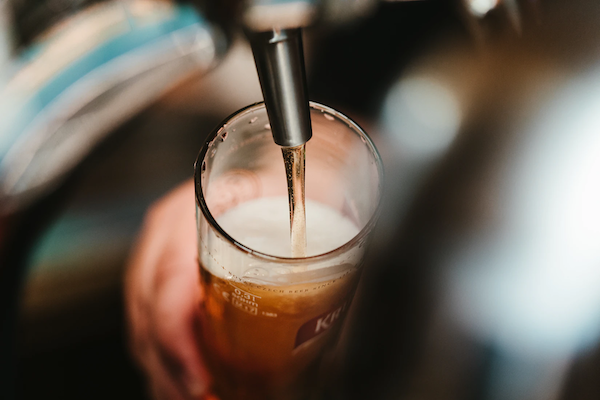
Every great film series includes a few key elements. Usually, they’re grounded in a great first act: the original movie that got the audience hook, line, and sinker — think Star Wars: A New Hope, Raiders of the Lost Ark, Back to the Future, The Godfather. We fall in love with compelling characters at first sight. Soon, a sequel is born to resume ongoing plotlines, expand the universe, and create new depth — think The Empire Strikes Back, Terminator 2, The Last Crusade. Eventually, a prequel is conceived to add new context, enrich backstory, and trace character roots: Rogue One, The Godfather: Part II, Temple of Doom (did you realize the second installment of the Indiana Jones series was a prequel?!). In other words, we put great weight on timelines, not just what’s happening now, but what came before and what is to come.
In the food and beverage industry, timeline carries great weight too. Not just that dish you’re eating right now, but how it came to be and how its continued production will impact the world going forward.
Tracing Versus Tracking
Tracing and tracking are both important components of traceability. And while they may sound like interchangeable terms dealing with the path of a product, there is an important distinction to be made. Tracing involves the history of a product’s path through the food chain. It’s the act of looking back to see where the lettuce, tomatoes, onions, black beans, rice, carnitas, and the rest of the ingredients in your burrito came from. When people get sick and you need to trace the origins of every part of that burrito in order to avoid further contamination and sickness, you are tracing.
Tracking, on the other hand, is more about the destination of a product along the food chain. Where these hamburger patties are headed next, from pasture to processing plant to packaging to point of sale to dinner plate.
Whether looking forward or backward, each component is vital to traceability in the food and beverage industry.
Protecting Public Health
The world runs on a complex global supply chain. And while volatile lumber prices may adversely impact your ability to buy a house, all due respect, it’s nothing compared to the consequences of a food safety outbreak. In late 2019, the FDA used traceability to pinpoint an outbreak of E.coli 0157:H7 back to romaine lettuce harvested in Salinas, California. By January of 2020, the threat was quelled, but not before 167 people across 27 states were infected by that particular strain of bacteria. Eight-five were hospitalized, including 15 who developed hemolytic uremic syndrome, a type of kidney failure. Mercifully, no deaths were reported.
Traceability plays a critical role in preparing for these outbreaks, responding quickly when something goes wrong, rebuilding trust once the emergency has subsided, and preventing future incidents through root cause analysis.
Sustainability and Business Impact
Traceability isn’t just for protecting public health, it plays a crucial role in appealing to new generations of consumers too. Now more than ever, people are interested in the provenance of the products they consume. Is your poultry and livestock being treated humanely? Are your food processing methods harmful to the environment? Are the workers who harvested these foods treated ethically?
Also consider that a quarter of U.S. adults are trying to manage a health or medical condition by making healthy food and beverage choices. Now can you prove that your products are indeed organic, as you claim? If you’re unable to provide transparency on matters of sustainability or provide proof of food product claims, consumers will take their business elsewhere.
Speaking of business, companies must still grapple with cost and bottom line. It’s no small matter that 52 percent of all recalls cost over $10 million and 23 percent cost over $30 million. In other words, the price of falling short in traceability is steep, whether it be failing to protect public health, incurring damage to your reputation, or putting your business in a costly situation.
So how do leading brands achieve mission critical traceability? They must seek out the tools of Industry 4.0 smart manufacturing. Utilizing a fact-based granular and data-centric contextualized view of material flows and related providence attribute data, unprecedented material traceability can be achieved. Such technology pumps out insight into ways to improve yield, quality, safety, compliance, transparency, and brand confidence while reducing waste and environmental impact. You need ThinkIQ’s Digital Manufacturing Transformation SaaS.
If you’re ready for unmatched farm-to-fork traceability, contact one of our experts for a consultation today. We also have a new selection guide eBook to help you better understand the questions you should be asking. Download your copy today.


